Salman Mohebi
Pilot Reuse in Cell-Free Massive MIMO Systems: A Diverse Clustering Approach
Dec 17, 2022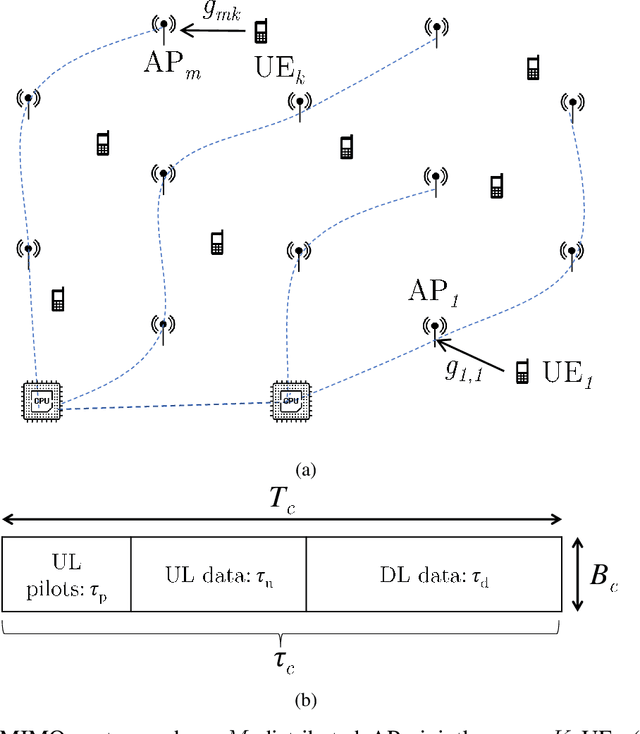
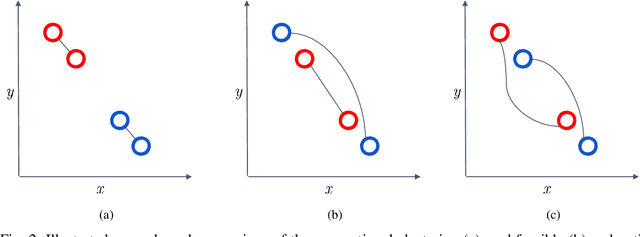
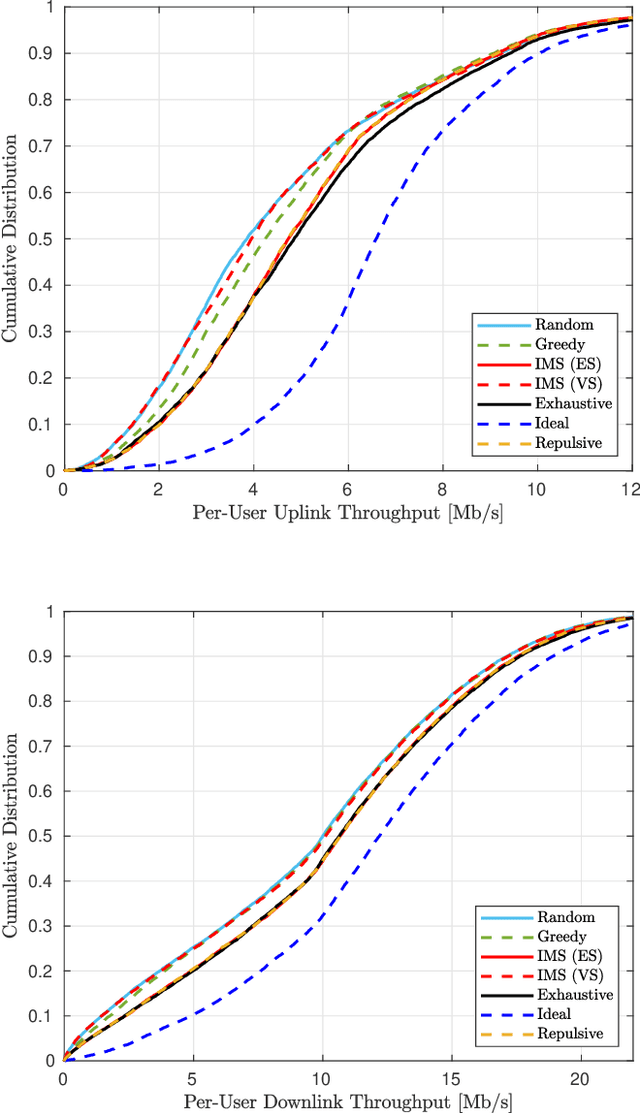
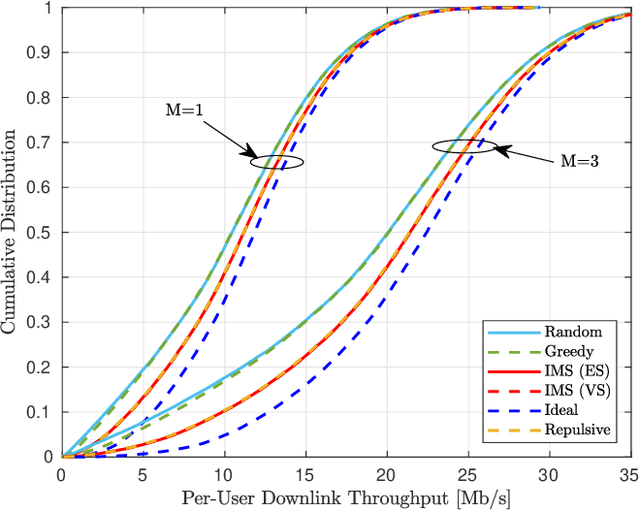
Abstract:Distributed or Cell-free (CF) massive Multiple-Input, Multiple-Output (mMIMO), has been recently proposed as an answer to the limitations of the current network-centric systems in providing high-rate ubiquitous transmission. The capability of providing uniform service level makes CF mMIMO a potential technology for beyond-5G and 6G networks. The acquisition of accurate Channel State Information (CSI) is critical for different CF mMIMO operations. Hence, an uplink pilot training phase is used to efficiently estimate transmission channels. The number of available orthogonal pilot signals is limited, and reusing these pilots will increase co-pilot interference. This causes an undesirable effect known as pilot contamination that could reduce the system performance. Hence, a proper pilot reuse strategy is needed to mitigate the effects of pilot contamination. In this paper, we formulate pilot assignment in CF mMIMO as a diverse clustering problem and propose an iterative maxima search scheme to solve it. In this approach, we first form the clusters of User Equipments (UEs) so that the intra-cluster diversity maximizes and then assign the same pilots for all UEs in the same cluster. The numerical results show the proposed techniques' superiority over other methods concerning the achieved uplink and downlink average and per-user data rate.
Energy-Efficient Design for RIS-assisted UAVcommunications in beyond-5G Networks
Sep 24, 2021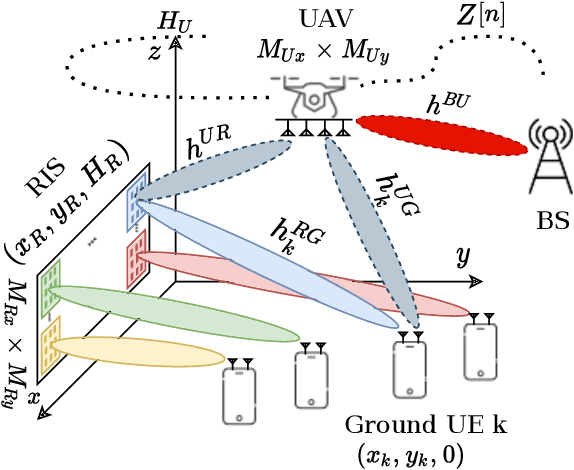
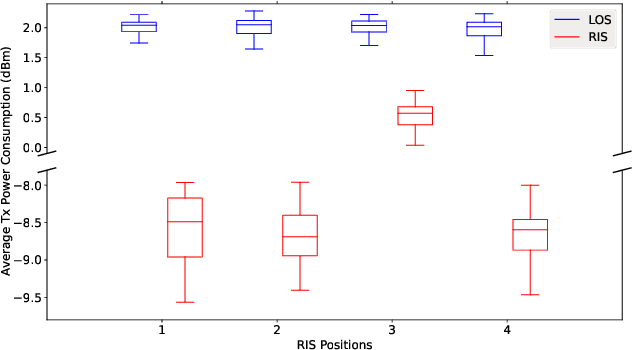


Abstract:The usage of Reconfigurable Intelligent Surfaces (RIS) in conjunction with Unmanned Ariel Vehicles (UAVs) is being investigated as a way to provide energy-efficient communication to ground users in dense urban areas. In this paper, we devise an optimization scenario to reduce overall energy consumption in the network while guaranteeing certain Quality of Service (QoS) to the ground users in the area. Due to the complex nature of the optimization problem, we provide a joint UAV trajectory and RIS phase decision to minimize transmission power of the UAV and Base Station (BS) that yields good performance with lower complexity. So, the proposed method uses a Successive Convex Approximation (SCA) to iteratively determine a joint optimal solution for UAV Trajectory, RIS phase and BS and UAV Transmission Power. The approach has, therefore, been analytically evaluated under different sets of criterion.
 Add to Chrome
Add to Chrome Add to Firefox
Add to Firefox Add to Edge
Add to Edge